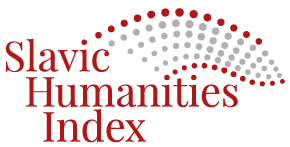Ethical Standards and Editorial Policy
The journal is committed to the highest standards of academic integrity and publishing ethics. All parties involved in the publication process (authors, editors, reviewers, and the publisher) are required to adhere to ethical principles based on the Committee on Publication Ethics (COPE) – Best Practice Guidelines for Journal Editors.Committee on Publication Ethics (COPE)
Responsibilities of Authors
Reporting Standards
Authors must present their research results clearly, accurately, and objectively, providing sufficient detail and references to allow replication of the work.
Originality and Plagiarism
Authors must ensure that submitted works are original. If the work or words of others are used, proper citation and acknowledgment are required.
Multiple or Redundant Publication
Authors should not submit the same manuscript to more than one journal simultaneously or publish substantially similar work in more than one venue without justification.
Acknowledgment of Sources
Proper acknowledgment of others’ work must always be provided, including citations of influential publications relevant to the research.
Authorship
Authorship should be limited to those who made significant contributions to the conception, design, execution, or interpretation of the research. All co-authors must approve the final version of the paper and consent to its submission.
Conflicts of Interest and Funding
Authors must disclose any financial or other conflicts of interest that could influence the results or interpretation of their work, as well as all sources of financial support.
Errors in Published Works
If an author discovers a significant error or inaccuracy in their published work, they are obliged to notify the editor immediately and cooperate in publishing a correction or retraction.
Responsibilities of Reviewers
Contribution to Editorial Decisions
Peer reviewers assist editors in making publication decisions and provide authors with constructive feedback to improve their manuscripts.
Timeliness
Reviewers who are unable to complete a review in a timely manner should immediately notify the editorial office.
Confidentiality
Manuscripts received for review must be treated as confidential documents and must not be shared or used outside of the review process.
Objectivity
Reviews should be conducted in an objective and constructive manner, without personal criticism of the author.
Acknowledgment of Sources
Reviewers should identify relevant works not cited by the authors and inform editors of any overlap or similarity between the manuscript and other published material.
Conflicts of Interest
Reviewers must not evaluate manuscripts in which they have competing interests or personal connections that could affect their impartiality.
Responsibilities of Editors
Accountability and Decision-Making
Editors are responsible for making final decisions regarding the acceptance of manuscripts, based on peer review and editorial policies. They must respect legal requirements regarding copyright, plagiarism, and defamation. Editors should maintain the integrity of the scholarly record and, when necessary, publish corrections, retractions, or apologies.
Fairness
Manuscripts are evaluated solely on their academic merit and intellectual content, without discrimination based on gender, ethnicity, religion, political views, or other personal characteristics of the authors.
Confidentiality
Editors and editorial staff must treat all submitted manuscripts as confidential and may only disclose information to authors, reviewers, and editorial board members directly involved in the review process.
Conflicts of Interest
Editors must recuse themselves from handling manuscripts in which they have a personal, professional, or financial conflict of interest. Privileged information obtained during the editorial process must not be used for personal gain.
Investigations and Misconduct
Editors are obliged to act on well-founded suspicions of ethical misconduct, including plagiarism or data manipulation, and follow COPE guidelines in resolving such cases.
Responsibilities of the Publisher
In cooperation with the editors, the publisher ensures that cases of unethical behavior, such as plagiarism or data falsification, are handled properly and transparently. When necessary, the publisher will issue retractions, or other corrections to maintain the integrity of the academic record.



